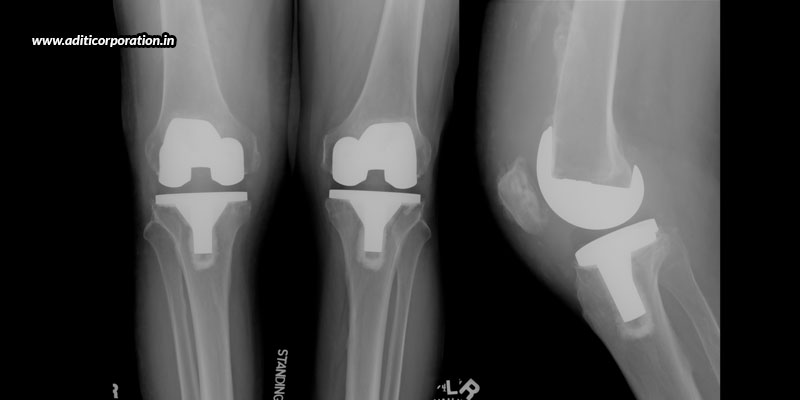
Things To Take Care Of When You Undergo Bilateral Total Knee Arthroplasty
28 FebTotal knee replacement arthroplasty is the removal of damaged bone and cartilage from the thigh bone, shin bone, and knee cap; and replacing it with artificial metal, plastic, or ceramic prostheses. These prostheses are either fixed in place with the help of bone cement or are press-fitted to recreate the joints. After the damaged bone is removed, the space is closed with such artificial prostheses, after which the patella is resurfaced. Also, a spacer is inserted to create a smooth gliding surface.
Similarly, a bilateral total knee replacement surgery is when both the knees require such replacement. There are two ways in which bilateral surgery is performed – one is where both knees receive prostheses on the same surgical intervention under a single anesthesia, while the other is a staged surgery wherein one knee is operated, and then the second knee is operated after a gap of few months.
Although bilateral knee replacement in Bangalore can eliminate pain from the knee and improve stability and functioning of the knee, but you must have reasonable expectations about the recovery time and rehabilitation involved with the surgery. Here is all that you must do during recovery from a bilateral total knee replacement surgery to ensure long term results.
Follow all instructions given by the doctor carefully
After the surgery, you will need to be very certain that you follow the instructions, exercises, and physical therapies given to you by your doctor. You will be given a set of exercises and therapies to undergo while at home. You must follow them, and also maintain your visits with a physical therapist who will strengthen your legs and restore knee movement. This must be followed for 4-6 weeks after surgery, or more, as directed by your doctor and therapist.
Prevent your wound from infection
You are likely to encounter infection in the wound or prostheses, or poor wound healing after knee surgeries. This is why surgeons provide antibiotics and other medications before surgeries to prevent such infections. These medications are continued even after the surgery is performed. Also, the patient is kept in the hospital under surveillance of the doctor for at least a day after the surgery. However, even if everything is fine, and you are discharged from the hospital after a day, you need to take utmost care at home for the first few weeks. You need to keep the wound away from water, and keep it bandaged well to prevent irritation and infection. If staples are used along the length of your incision point, it will need to be removed after two weeks of surgery. But, within these two weeks, if you experience fever, chills, redness, swelling, tenderness, or leakage from the wound, you must inform your doctor immediately!
Be prepared to face complications
You must realize that any kind of surgery is likely to have complications. Although there are very low chances, but you must be prepared to face them. Complications with total knee replacement include blood clots, infection, nerve injury, and continued joint pain. So, if you face any of these, don’t panic, and let your doctor know, and follow his instructions.

